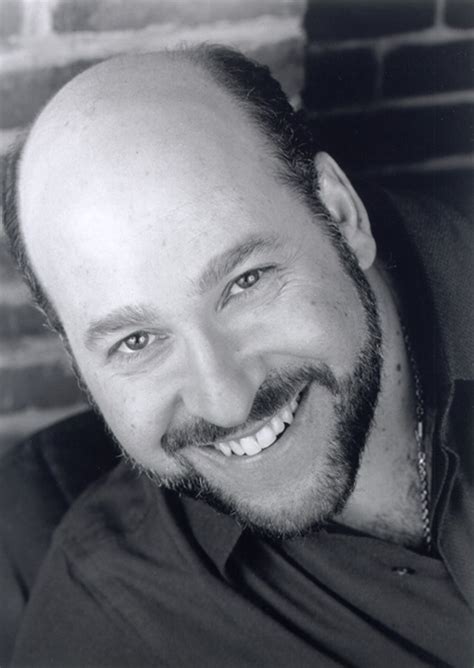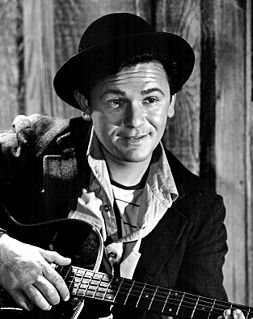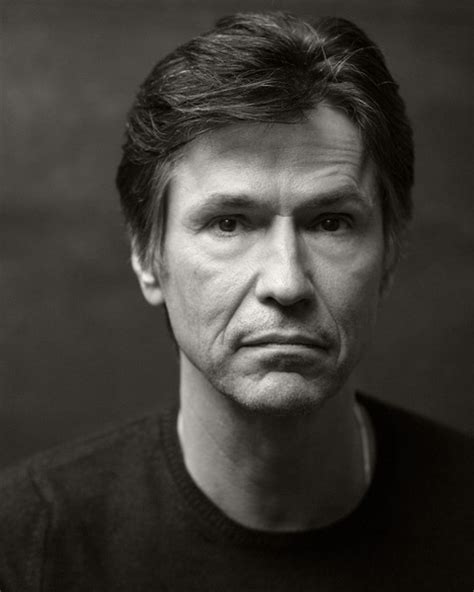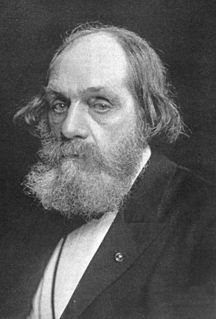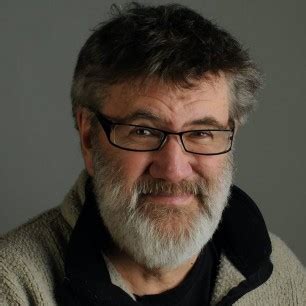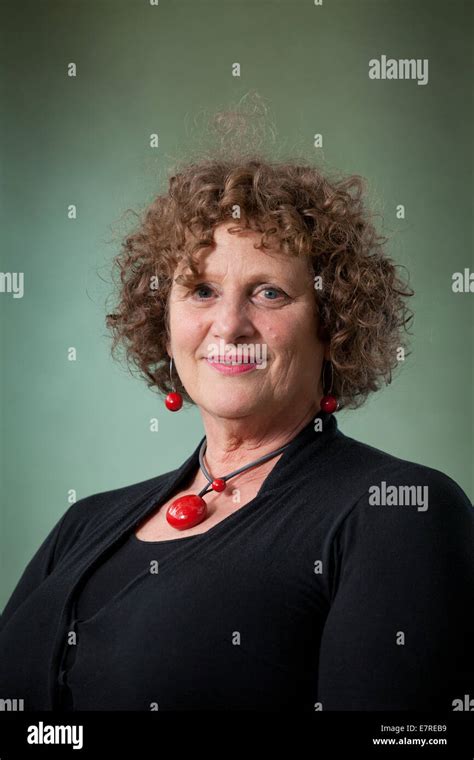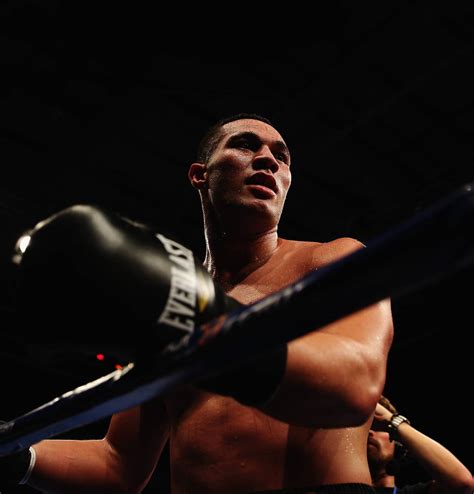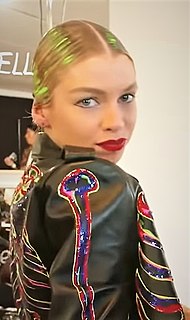Top 1200 Close Reading Quotes & Sayings - Page 19
Explore popular Close Reading quotes.
Last updated on November 16, 2024.
I think I became a better writer after I started writing for the New Yorker. Well, I know I did. And part of it was having my New Yorker editor and part of it is that was when I started really going on tour and reading things in front of an audience 30 times and then going back in the room and rewriting it and reading it and rewriting it. So you really get the rhythm of the sentences down and you really get the flow down and you get rid of stuff that's not important.
When you sing opera you are very far from the people, you are onstage, and between you and the people there is the orchestra. So you have to launch your emotions very, very far. When you sing pop, you are singing very close - the microphone is very close to your mouth. You can whisper your emotions into the microphone.
When the theater is gothic it matches the sensibility of the show. It's also very intimate. The audience is very close to the performers. The show is scary and the scary stuff always works best with an intimacy with the audience. And the show is erotic, and I think erotic always works best when it's close to the audience, as well.
I don't want to stand with somebody's praise. Whereas now when people come up to me, they say, "I love the bookstore" and "Kids! Come here, come here! This is the woman who owns the bookstore." That's incredible. I can say to that, "Thank you for shopping local. Thank you for coming in. What are you reading? Let's talk about books." It's about something I'm doing as opposed to somehow something I am. I feel comfortable and positive in that role. Because it's about reading. It's about books. It's about learning. It's about business and tax base.
When you are young, you think it's going to be solved by love. But it never is. Being close -- as close as you can get -- to another person only makes clear that impassable distance between you.' If being in love only made people more lonely, why would everyone want it so much?' Because of the illusion. You fall in love, it's intoxicating, and for a little while you feel like you've actually become one with the other person. Merged souls and so on. You think you'll never be lonely again.
A God who draws near out of love, the Holy Father continued, walks with His people, and this walk comes to an unimaginable point. We could never have imagined that the same Lord would become one of us and walk with us, be present with us, present in His Church, present in the Eucharist, present in His Word, present in the poor, He is present, walking with us. And this is closeness: the shepherd close to his flock, close to his sheep, whom he knows, one by one.
There is no shortage of good days. It is good lives that are hard to come by. A life of good days lived in the senses is not enough. The life of sensation is the life of greed; it requires more and more. The life of the spirit requires less and less; time is ample and its passage sweet. Who would call a day spent reading a good day? But a life spent reading -- that is a good life.
Still in my coat and hat, I sank onto the stair to read the letter. (I never read without making sure I am in a secure position. I have been like this ever since the age of seven when, sitting on a high wall and reading The Water Babies, I was so seduced by the descriptions of underwater life that I unconsciously relaxed my muscles. Instead of being held buoyant by the water that so vividly surrounded me in my mind, I plummeted to the ground and knocked myself out. I can still feel the scar under my fringe now. Reading can be dangerous.)
Every act of motherhood contains a dual intent, as the mother holds the child close and prepares it to move way from her, as she supports the child and stands it firmly on its own feet, and as she guards it against danger and sends it out across the yard, down by the stream, and across the traffic-crowded highway. Unless a mother can do both - gather her child close and turn her child out toward the world - she will fail in her purpose.
My daughter is seven, and some of the other second-grade parents complain that their children don't read for pleasure. When I visit their homes, the children's rooms are crammed with expensive books, but the parent's rooms are empty. Those children do not see their parents reading, as I did every day of my childhood. By contrast, when I walk into an apartment with books on the shelves, books on the bedside tables, books on the floor, and books on the toilet tank, then I know what I would see if I opened the door that says 'PRIVATE--GROWNUPS KEEP OUT': a child sprawled on the bed, reading.
I'm very interested in clans and the way people group together, and there's a lot of group shots. There's a lot of people in positions that people feel like they're in attack mode, kind of pointed at each other in the frame. I'm not a big fan of shooting something that looks like it could belong in any movie, I'm not a fan of okay, "wide shot, wide shot, medium shot, close-up, close-up, we'll figure it out in post." I hate that.
By the time I got to college I had stopped reading books because I wanted to "be cool" and started reading books simply because I wanted to read them. I discovered heroes like Roth, King, Dahl, Shirley Jackson, Patricia Highsmith, TC Boyle, Douglas Adams, Neil Gaiman, David Sedaris. These people weren't trying to "rebel against the literary establishment." They were trying to write great, high-quality books that were as entertaining and moving as possible.
The second suggestion is to think as well as to read. I know people who read and read, and for all the good it does them they might just as well cut bread-and-butter. They take to reading as better men take to drink. They fly through the shires of literature on a motor-car, their sole object being motion. They will tell you how many books they have read in a year. Unless you give at least 45 minutes to careful, fatiguing reflection (it is an awful bore at first) upon what you are reading, your 90 minutes of a night are chiefly wasted.
If the task of scientific methodology is to piece together an account of what scientists actually do, then the testimony of biologists should be heard with specially close attention. Biologists work very close to the frontier between bewilderment and understanding.
Biology is complex, messy and richly various, like real life; it travels faster nowadays than physics or chemistry (which is just as well, since it has so much farther to go), and it travels nearer to the ground. It should therefore give us a specially direct and immediate insight into science in the making.
I'm very pessimistic about adaptations from one medium to another. I've got a very kind of primitive, Puritan view of it. I tend to think that if something was derived for one medium, then there's no real immediate reason to think that it's necessarily going to be as good or better if adapted into another one. There have been very good stage plays that have made some very good films. But there are not so many differences between the theater and the cinema as there are between the cinema and, say, reading a book or reading a comic.
The Bible is forbidding when you start to read it. The language is odd. The stories start and stop herkily-jerkily. The characters behave in inexplicable ways. It takes a little bit of time to get into the rhythm of the book. I found reading the first 15 chapters of Genesis very very difficult. Once I got past there, I loved reading, and found it very easy. When you get used to the Bible, it becomes thrilling to read (like any great book - I just had exactly the same experience with the Odyssey).
Slowly, gently night unfurls its splendor. Grasp it, sense it, tremulous and tender. Turn your face away from the garish light of day, turn your thoughts away from cold, unfeeling light, and listen to the music of the night... Close your eyes and surrender to your darkest dreams, purge your thoughts of the life you knew before. Close your eyes, let your spirit start to soar, and live, as you never lived before!
My wife, my Mary, goes to her sleep the way you would close the door of a closet. So many times I have watched her with envy. Her lovely body squirms a moment as though she fitted herself into a cocoon. She sighs once and at the end of it her eyes close and her lips, untroubled, fall into that wise and remote smile of the Ancient Greek gods. She smiles all night in her sleep, her breath purrs in her throat, not a snore, a kitten's purr... She loves to sleep and sleep welcomes her.
The rules for reading yourself to sleep are easier to follow than are the rules for staying awake while reading. Get into bed in a comfortable position, make sure the light is inadequate enough to cause slight eyestrain, choose a book that is either terribly difficult or terribly boring-in any event, one that you do not really care whether you read or not-and you will be asleep in a few minutes. Those who are experts in relaxing with a book do not have to wait for nightfall. A comfortable chair in the library will do any time
You can take me and then you can take a blond white man with blue eyes, and you could say, "Fundamentally, they're different." And then I could talk to that white guy about the first time he lost someone close to his heart, and I could tell him about the first time I lost someone close to my heart, and I can guarantee you that at least 70 percent of the experienced feelings will be similar. We are human beings.
TV acting is so extremely intimate, because of the peculiar involvement of the viewer with the completion or "closing" of the TV image, that the actor must achieve a great degree of spontaneous casualness that would be irrelevant in movie and lost on the stage. For the audience participates in the inner life of the TV actor as fully as in the outer life of the movie star. Technically, TV tends to be a close-up medium. The close-up that in the movie is used for shock is, on TV, a quite casual thing.
I submit that tennis is the most beautiful sport there is, and also the most demanding....Basketball comes close, but it's a team sport and lacks tennis's primal mano a mano intensity. Boxing might come close- at least at the lighter weight divisions- but the actual physical damage the fighters inflict on each other makes it too concretely brutal to be really beautiful- a level of abstraction and formality (i.e., play) is necessary for a sport to possess true metaphysical beauty (in my opinion).
Whether it's animated, whether it's live-action, whether it's Broadway, whether it's television, a musical is a musical is a musical. So, pretty much you approach the songs in pretty much the same way. The difference might be that in a film you have a close up. On stage you don't. So there are more songs on the stage because the songs are kind of the close up.
Reading, therefore, is a co-production between writer and reader. The simplicity of this tool is astounding. So little, yet out of it whole worlds, eras, characters, continents, people never encountered before, people you wouldn’t care to sit next to in a train, people that don’t exist, places you’ve never visited, enigmatic fates, all come to life in the mind, painted into existence by the reader’s creative powers. In this way the creativity of the writer calls up the creativity of the reader. Reading is never passive.
Theoretically, you can make, obviously, a powerful argument that centuries of slavery, Jim Crow, discrimination are the primary cause for all those gaps. That those were wrongs done to the black community as a whole, and black families specifically, and that in order to close that gap, a society has a moral obligation to make a large, aggressive investment, even if it's not in the form of individual reparations checks, but in the form of a Marshall Plan, in order to close those gaps. It is easy to make that theoretical argument.
It is true that not even Christ is seen, but he exists; he is risen, he is alive, he is close to us, more truly than the most enamored husband is close to his wife. Here is the crucial point: to think of Christ not as a person of the past, but as the risen and living Lord, with whom I can speak, whom I can even kiss if I so wish, certain that my kiss does not end on the paper or on the wood of a crucifix, but on a face and on the lips of living flesh (even though spiritualized), happy to receive my kiss.
Turn off your radio. Put away your daily paper. Read one review of events a week and spend some time reading good books. They tell too of days of striving and of strife. They are of other centuries and also of our own. They make us realize that all times are perilous, that men live in a dangerous world, in peril constantly of losing or maiming soul and body. We get some sense of perspective reading such books. Renewed courage and faith and even joy to live.
Annabeth, thank goodness, would be staying in New York. She'd gotten permission from her parents to attend a boarding school in the city so she could be close to Olympus and oversee the rebuilding efforts. "And close to me?" I asked. "Well, someone's got a big sense of his own importance." But she laced her fingers through mine. I remembered what she'd told me in New York, about building something permanent, and I thought—just maybe—we were off to a good start.
I always thought my days spent in darkness [as a child she had cataracts and was unable to see for nearly four years] gave me a very special sensitivity. Much later, when I really wanted to hear, really 'see' a song, I'd close my eyes, and when I wanted to bring it out of the very depths of myself, out of my guts, out of my belly, when the song had to come from far away, I'd close my eyes.
With so much reading ahead of you, the temptation might be to speed up. But in fact it’s essential to slow down and read every word. Because one important thing that can be learned by reading slowly is the seemingly obvious but oddly underappreciated fact that language is the medium we use in much the same way a composer uses notes, the way a painter uses paint. I realize it may seem obvious, but it’s surprising how easily we lose sight of the fact that words are the raw material out of which literature is crafted.
The main reason I decided to study Latin American literature was because I'd gotten somewhat bored by the American fiction I was reading. I am not drawn to a specific style or aesthetic. When I think about literature, I think about it in the three languages I read easily - English, Spanish, and Portuguese. The authors I prefer are all very different and are not limited to certain genres or even certain time periods. Reading across three languages is a way for me to diversify my intake as a reader, not to tunnel into certain categories or demographics.
I hate being too serious about anything. If I'm with my friend, I want to be having fun with him or her. And if anybody is reading my story, I want them to be not only reading the story, but I want them to feel they're having fun; that they're enjoying it. So any way you can make it more informal, more fun-filled, more amusing - instead of just a dry story that goes on and on - if there's any way to do that, I like to try and do it.
When I need to take a side, I write a newspaper article and I tell my government, "You should not do that, you should do this." They don't listen to me, but I've been doing this for sixty years now. But, when I write a novel, I am not in that business. I follow the way people change. I follow the way people, who are very antagonized to one another become very close to one another and vice-versa. Sometimes I follow the way people who are intimately close to each other move apart.
..there is need for a person to be generally educated. Otherwise you shrivel up much too soon. Whether this means reading the bible (I read the New Testament every few years) or reading the great 19th century novelists (the greatest and shrewdest judge of people and of society who ever lived), or classical philosophy (which I cannot read-it puts me to sleep immediately), or history (which is secondary). What matters is that the knowledge worker, by the time he or she reaches middle age, has developed and nourished a human being rather than a tax accountant or a hydraulic engineer.
If you want to be a fiction writer, you need to start reading like a fiction writer. To do so, you need to learn about craft so that the next time you pick up a contemporary short story, you're reading it not as an abstraction floating in formaldehyde, existing simply for the theorist's dull scalpel to saw on, but as a concrete thing constructed out of words and shaped by syntax, brought to life by a writer who made several thousand choices, some large, some small, before letting that imperfect beauty, the story, walk on its own two feet.
The church itself has got to go outside of its own borders and carry the gospel to ev'ry creature, or it is no church of Christ; and any mutual improvement club which thinks that by reading its Shakspearo, or by acting its pretty tableaux, or by having. this or that little reading from Spenser and from Chaucer, it is going to lift itself up into any higher order of culture or life, is wholly mistaken, unless as an essential part of its duty, it goes out into the world, finds those that are falling down, and lifts them up to the majesty of freemen, who are sons of God.
Despite wanting to work in publishing, I was a publisher's worst nightmare: I rarely bought new books. So my goal was to publish the kind of books I would buy, and read. My reading habits have changed since starting the press. The only other "goal", per say, is to continue to experiment. I don't want the press to ever fall into a formula, or to be pigeonholed - "They do great reissues of modernist poets!" - I want to keep pushing, exploring the kind of title we can get away with. And working with authors who challenge the way I think about writing, editing and reading.
I don't remember reading much at all during the writing of Eileen. I go through several years-long dry spells and I don't feel like reading at all. I was working part-time for a guy in Venice, California while I drafted Eileen. He wanted help in writing his memoir. The research had a lot to do with the 60s, so that must have informed my sense of the place and time in my novel, and perhaps even the memoir point-of-view. He was also from New England. It was a fun job. I learned a lot about motorcycle clubs, Charles Manson, hopping freight trains.
The deep-read is when you get gut-hooked and dragged overboard down and down through the maze of print and find, to your amazement, you can breathe down there after all and there’s a whole other world. I’m talking about the kind of reading when you realize that books are indeed interactive. . . . I’m talking about the kind of deep-read where it isn’t just the plot or the characters that matter, but the words and the way they fit together and the meandering evanescent thoughts you think between the lines: the kind of reading where you are fleetingly aware of your own mind at work.
A learned man is a sedentary, concentrated solitary enthusiast, who searches through books to discover some particular grain of truth upon which he has set his heart. If the passion for reading conquers him, his gains dwindle and vanish between his fingers. A reader, on the other hand, must check the desire for learning at the outset; if knowledge sticks to him well and good, but to go in pursuit of it, to read on a system, to become a specialist or an authority, is very apt to kill what suits us to consider the more humane passion for pure and disinterested reading.
From the perspective of someone with two grown and wonderful kids, that your instincts as parents are correct: a minute spent reading to your kids now will repay itself a million-fold later, not only because they love you for reading to them, but also because, years later, when they’re gone and miles away, those quiet evenings, when you were tucked in with them, everything quiet but the sound of the page-turns, will, seem to you, I promise...... sacred.
But, in the end, the books that surround me are the books that made me, through my reading (and misreading) of them; they fall in piles on my desk, they stack behind me on my shelves, they surprise me every time I look for one and find ten more I had forgotten about. I love their covers, their weight and their substance. And like the child I was, with the key to the world that reading gave me, it is still exciting for me to find a new book, open it at the first page and plunge in, head first, heart deep.
Listen. Look. Desire is a house. Desire needs closed space. Desire runs out of doors or windows, or slats or pinpricks, it can’t fit under the sky, too large. Close the doors. Close the windows. As soon as you laugh from nerves or make a joke or say something just to say something or get all involved with the bushes, then you blow open a window in your house of desire and it can’t heat up as well. Cold draft comes in.
Everything about singing, I learned from busking. Everything I learned about songwriting, I learned from busking. Busking, you learn people, you learn about reading people. You learn about reading the atmosphere of the street. If you stand still in any city long enough, you see everyone pass you by. It's almost like you get to know personality types, just by watching people walk past. You get a sense for things.
I was reading Raymond Chandler very much with the feminist eye. In six of his seven novels, it's the woman who presents herself in a sexual way, who is the main bad person. And then you start reading more fiction, whether crime fiction or straight fiction, it's just bad girls trying to make good boys do bad things, going all the way back to Adam and Eve. The woman that thou gavest me made me do it, Adam says to God.
It is usual to speak in a playfully apologetic tone about one's adult enjoyment of what are called 'children's books.' I think the convention a silly one. No book is really worth reading at the age of ten which is not equally (and often far more) worth reading at the age of fifty-except, of course, books of information. The only imaginative works we ought to grow out of are those which it would have been better not to have read at all. A mature palate will probably not much care for crème de menthe: but it ought still to enjoy bread and butter and honey.
I don't believe we need a good conservative judge, and I don't believe we need a good liberal judge. I subscribe to the Justice Potter Stewart standard. He was a justice on the Supreme Court of the United States. And he said the mark of a good judge, good justice, is that when you're reading their decision, their opinion, you can't tell if it's written by a man or woman, a liberal or a conservative, a Muslim, a Jew or a Christian. You just know you're reading a good judicial decision.
Have you ever found your heart's desire and then lost it? I had seen myself, a portrait of myself as a reader. My childhood: days home sick from school reading Nancy Drew, forbidden books read secretively late at night. Teenage years reading -trying to read- books I'd heard were important, Naked Lunch, and The Fountainhead, Ulysses and Women in Love... It was as though I had dreamt the perfect lover, who vanished as I woke, leaving me pining and surly.
To travel only a few blocks in his own homeland, an elderly grandfather waits to beg for the whim of a teenage soldier. More than an emergency is required to get to a hospital; less than a crime earns a trip to jail.
Continue reading the main story
Advertisement
Continue reading the main story
The lucky ones have a permit to leave their squalor to work in the cities, but luck runs out when security closes all checkpoints, paralyzing an entire people. The indignities, dependence and anger are all too familiar.
I actually dislike, more than many people, working through literary allusion. I just feel that there's something a bit snobbish or elitist about that. I don't like it as a reader, when I'm reading something. It's not just the elitism of it; it jolts me out of the mode in which I'm reading. I've immersed myself in the world and then when the light goes on I'm supposed to be making some kind of literary comparison to another text. I find I'm pulled out of my kind of fictional world, I'm asked to use my brain in a different kind of way. I don't like that.
I began reading Harper Lee's novel in the skimpy shade of a pine outside my grandmother's house, fat beagles pressing against me, begging for attention, ignored. At dark, I kept reading, first on the couch, a bologna sandwich in one hand, then in my bed, by the light of a 60-watt bulb hanging from the ceiling on an orange drop cord. When my mother came in from her job as a maid and unplugged my chandelier, I replayed the story in my head until it was crowded out by dreams. I woke the next morning, smelling biscuits, and reached for the book again.


